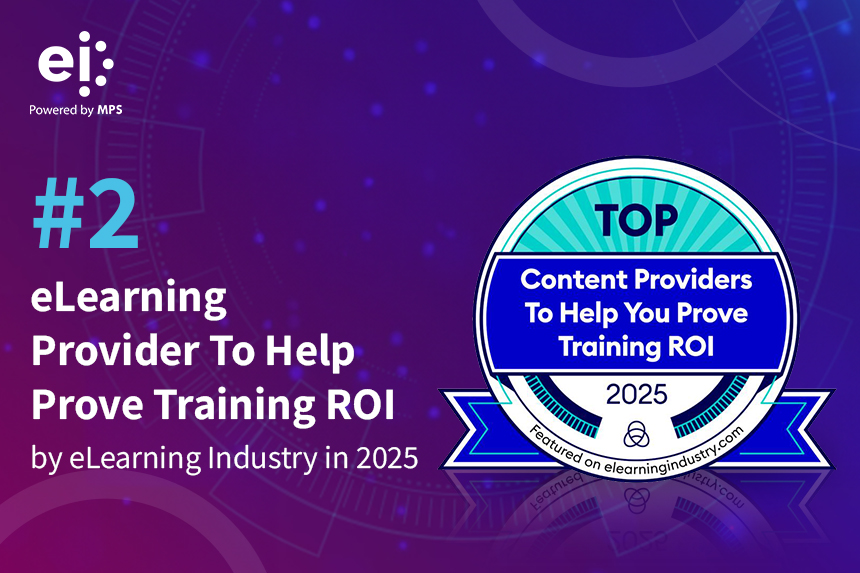
A product launch fails to gain traction, experiences slow adoption, and the message misses the mark. On the surface, it looks like a marketing issue, but beneath it lies a learning gap.
Moments like these don’t always call for more training. They call for a more innovative strategy. That’s where a Learning and Development (L&D) Consultant steps in, not to deliver off-the-shelf content but to diagnose, design, and drive learning that solves real problems.
Today, L&D consultants are not just instructional designers. They are performance advisors who shape learning ecosystems that align with business priorities, close capability gaps, and scale quickly.
In this article, we break down the fundamental role of a learning & development consultant: what they do, the skills they bring, and why organizations can benefit from their skillset.
How L&D Consultants Turn Training Into Business Performance
An L&D Consultant helps ensure that your learning strategy does more than deliver content; it delivers results.
For instance, when your company rolls out a new CRM. The tool could be sound, but the adoption might still not be sufficient.
This could be because sales teams are hesitant, and support staff are frustrated. Overall, productivity will plummet.
This is where an L&D Consultant steps in — not to run a generic training session, but to solve the real issue behind low adoption. Instead of delivering off-the-shelf content, they tailor interventions to the business context, role expectations, and on-the-job needs, ensuring the solution drives real performance change.
Let’s look at how they do that in practice.
1. Pinpoint the Right Learning Needs
L&D Consultants don’t rely on guesswork. They partner with teams and leaders to:
- Understand real business challenges.
- Identify skill and performance gaps.
- Spot opportunities for growth.
With hybrid roles and flexible work models becoming common, learning needs have grown more complex. L&D must support employees working across locations and balancing diverse responsibilities. Consultants help design training that builds collaboration, digital skills, and agility for this evolving work environment.
2. Design Learning That Sticks
Anyone can design generic courses that lack depth. L&D consultants shape comprehensive employee development and workforce training experiences that match your context.
These programs usually include:
- Microlearning for quick, on-the-job support.
- Story-based learning to deepen understanding.
- Gamification to boost engagement.
- Immersive learning tools like AR and VR for realistic practice.
The goal is to ensure that learning isn’t seen as a placeholder activity but is made practical, accessible, and easy to apply.
3. Measure What Matters
It’s not enough to track attendance in a remote training session. Great L&D Consultants know that the following are much better KPIs:
- Skill improvement.
- Behavior changes.
- Performance impact.
- Learner engagement and feedback insights.
Many L&D professionals rely on established frameworks such as the Kirkpatrick Model to evaluate these outcomes effectively. This model assesses training effectiveness across four levels: Reaction (learner satisfaction), Learning (knowledge gained), Behavior (application on the job), and Results (impact on business performance).
Using such frameworks helps you connect your training efforts to meaningful, measurable results beyond simple participation metrics.
While the process itself is critical, what makes a learning & development consultant truly impactful is how they approach the work. Beyond strategy and delivery, it’s their mindset, adaptability, and skillset that determine whether learning actually drives change.
What Makes a Great L&D Consultant? Skills That Drive Results
Behind every high-impact learning strategy is a consultant who knows how to translate business needs into real behavior change. Here’s what sets top L&D consultants apart and why these skills matter to your organization’s bottom line.
1. They Get How Adults Learn and Why It Matters
Great consultants know instructional theory but know how to make it work. They design learning processes that are relevant, flexible, and actionable.
Why it matters: Learners retain more, apply faster, and stay engaged.
2. They Drive Projects, Not Just Plans
From kick-off to rollout, L&D consultants keep moving parts aligned, managing timelines, budgets, and stakeholders without losing sight of the outcome.
Why it matters: Training launches faster, smoother, and with less friction.
3. They Speak Tech Without the Jargon
Consultants today must know how to choose, use, and troubleshoot the right tools to support specific learning objectives and user needs. This includes AI-powered LMS platforms, interactive authoring tools, and actionable analytics dashboards.
Why it matters: This helps technology become an enabler, not a barrier.
4. They Build Remote-Ready Learning That Works
Today’s learning isn’t bound to a classroom, and L&D consultants make sure your programs aren’t either. They don’t just digitize content; they design personalized, workflow-integrated learning that meets employees where they are.
They do this through tools like mobile learning platforms for on-the-go access, interactive content that encourages engagement, and real-time digital support that helps employees apply knowledge in the moment.
Why it matters: Learning becomes part of daily work, not a disruption — improving engagement, access, and retention across distributed teams.
5. They Stay Future-Focused
Top consultants stay curious. They explore what’s next: VR, mobile-first design, microlearning, or AI coaching. And then, they adapt it to the specific context of your learners and business.
Why it matters: Your learning ecosystem evolves instead of aging out.
In short, L&D consultants blend expertise with adaptability. This combination makes them trusted partners across the business, not just in the learning function. However, what truly sets an L&D Consultant apart is their ability to link learning to tangible outcomes. That’s where measurement comes in.
Measuring Impact: How L&D Consultants Track Success
Every learning initiative should answer one question: Did it make a difference?
L&D Consultants build measurement into the process from day one. They don’t wait until the end to find out if something worked.
They define success early, align it with business goals, and track progress continuously.
They focus on KPIs that reflect real change and aren’t empty metrics. It’s less about how many people completed a course and more about what changed after they did.
Here’s what they typically measure:
- Training Effectiveness
Are employees retaining what they learn? Is it showing up in how they work, communicate, or solve problems? - Behavior Change
Are teams using new tools correctly? Are managers applying leadership techniques from their training? - Engagement With Learning
Beyond logins and completions, are learners revisiting content, engaging in discussions, or asking for more? - ROI on Training
Was the investment worth it? Are there any cost savings, higher performance, or faster time to competency? - Productivity Improvements
After training, is there a measurable uptick in output, efficiency, or error reduction? - Skill Gap Reduction
Are employees showing stronger performance post-training? What do self-assessments or project outcomes reveal? - Business Impact
Does learning contribute to better retention, improved customer experiences, or greater team innovation?
Together, these metrics offer a complete view of how learning influences real business outcomes, not just individual performance.
L&D Consultants don’t just collect data for its own sake. They use it to connect learning outcomes to business results. This kind of insight also helps refine future training.
What worked well? What needs adjusting? Where should you invest next?
By tracking the correct data, consultants help turn L&D from a support function into a performance driver. And when done right, the impact speaks for itself.
Building the Future of Learning, One Consultant at a Time
A great L&D Consultant doesn’t just deliver training. They shape how your organization builds capability, adapts to change, and grows from within.
Throughout this article, we’ve explored how consultants identify learning needs, design impactful programs, integrate technology, and track business results.
They clarify complex problems, bridge skill gaps with purpose-driven learning, and ensure that every training initiative moves the business forward.
For companies that want to scale learning in an agile and aligned way, partnering with the right L&D expert is no longer optional. It’s a strategic move.
Why Organizations Partner With EI for L&D Consulting
At EI, our L&D Advisory and Consulting Services are built to help organizations like yours maximize the return on every training investment.
With over three decades of industry experience, we bring a proven mix of learning science, human-centered design, and technology expertise. From conducting needs assessments and building performance ecosystems to implementing immersive learning solutions, we are your strategic partner in building a future-ready workforce.
From virtual training and scalable content to embedding learning into culture, we build systems that deliver measurable results.
Ready to Build a Learning Strategy That Performs?
Let’s explore how we can help you unlock the full potential of your workforce.
Connect with EI’s consulting team today and take the next step toward measurable workforce growth.



